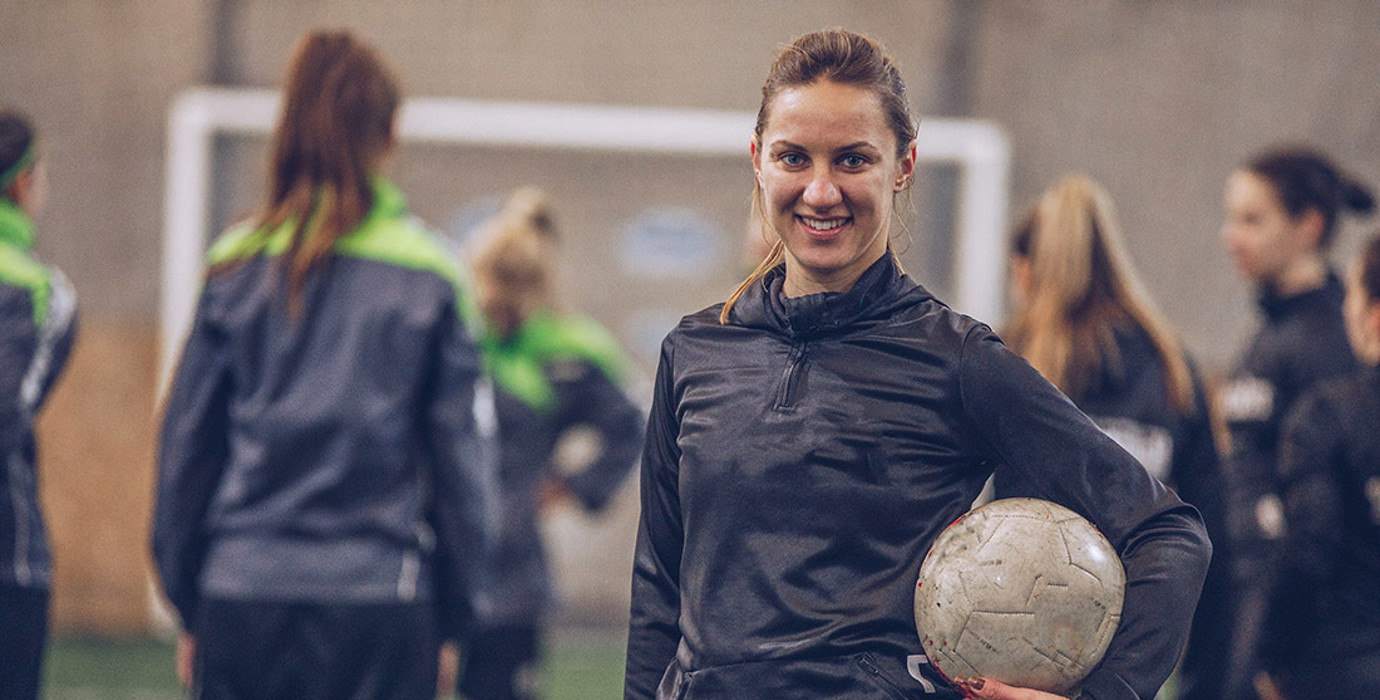We’re all born with a few of the 9 abilities that employers need. You may be good with your hands, for example, or quick to understand instructions. Recognizing your abilities will help you find a satisfying career.
Abilities are different from skills. You can learn skills, but you’re born with abilities. Research shows that there are many kinds of “smart.” We all have our own talents and abilities. For example, some of us can learn languages easily or are good with their hands. Or, you may be good with numbers. You’ll still need to learn the skills of measuring or calculating, but your ability with numbers will make it easier to pick up those skills. And you have the potential to do well in jobs where math is needed.
As you work to choose an occupation, try to think about what your own gifts are. Nurture them. Celebrate them. Look for occupations that use your gifts.
The General Aptitude Test Battery (GATB)
The GATB measures your 9 aptitudes or abilities. It is used in the Government of Canada’s Career Handbook, and here on alis, to identify occupations in which people with different abilities are likely to perform well.
The 9 abilities are arranged into 3 different groups: mental abilities, awareness abilities, and physical abilities. Consider which of the 9 might be your top abilities and how they can be applied to different occupations.
Research shows that there are many kinds of "smart." We all have our own talents and abilities. For example, some of us can learn languages easily or are good with our hands. Maybe you're a gifted musician or excel in sports. As you work to choose an occupation, try to think about what your own gifts are. When you're feeling unsure of yourself, remember your gifts. Look for occupations that use your gifts.
Mental abilities
These 3 abilities relate to how well you can reason or think something through:
- General learning ability—This ability lets you catch on quickly when you are explained something. You can easily understand instructions, reason, and make judgements. If you’ve done well at school, you likely have an ability for general learning.
- Foresters use their general learning ability to plan and direct forest surveys, and to establish plans for managing forest lands and resources. You’ll need it for work as an anthropologist or forester.
- Anthropologists use it to understand, acquire, and apply principles, theories, and methods of study conduct research into the origins of human societies and cultures.
- Verbal ability—If you understand the meaning of spoken words and the ideas related to them, you have a verbal aptitude. You understand language and the relationships between words, sentences, and paragraphs. With this ability you can present information or ideas clearly and easily. You’ll need this to teach a class, argue a court case, or make a sales presentation.
- Public relations representatives use their verbal ability to act as spokespeople for organizations, answer questions clearly, and increase awareness of their employers or clients.
- Psychologists use it to counsel people, provide consultation services to organizations, and to deliver presentations at conferences and workshops.
- Numerical ability—Can you figure out a 15% discount without batting an eye? Are you good at doubling or tripling recipe ingredients? Do you have the goals-against average for your favourite goalie at your fingertips? If you can solve these types of math problems quickly and accurately, you’re showing your numerical ability. You’ll need it to make decisions in finance, calculate measurements in engineering, and create formulas and experiments in science.
- Carpenters use their numerical ability to calculate precise measurements and prepare cost estimates for clients.
- Astronomers use it to interpret their observations and develop mathematical models that extend our knowledge of celestial bodies and cosmic radiation.
Awareness abilities
These 3 abilities deal with how you perceive or become aware of something by using your senses:
- Spatial perception (or 3-D awareness)—This ability lets you form pictures in your mind. You understand how a 3-D object, such as a 4-walled building, can be shown in a 2-D drawing. You know how objects relate to each other even when they’re moved or you move yourself. Can you figure out if the couch will fit into the basement? Or where you need to be to catch the flyball? Then you have good spatial perception. You can use this ability to read blueprints or move furniture.
- Fashion designers use their spatial perception ability to visualize the final appearance of their clothing and how they’ll fit on different people’s bodies.
- Landscape architects use it to conduct physical planning studies of communities and neighbourhoods, and to translate complex features such as trees, gardens, walkways, patios, retaining walls, and fountains into their drawings.
- Form perception (or shape awareness)—When you look at objects or 2-D photos or drawings, can you see all the details? If you can and you understand why they’re important, you have good form perception. With this ability, you can figure out differences just by looking at them. You’ll quickly pick the apple with no bruises or the shirt with no missing buttons. You’re able to see slight differences in the shapes and shadings of figures, or the widths and lengths of lines.
- Electricians use their form perception ability to read and interpret drawings, circuit diagrams and electrical code specifications.
- Web designers use it to prepare, arrange and optimize web content, and to create mock-ups of the site’s appearance, layout, and flow using a variety of graphic, animation, and other software.
- Clerical perception (or print detail awareness)—Can you copy down phone numbers without mixing things up? Are you good at seeing where a web address has been misspelled? Your “eye for detail” allows you to easily find the important details in documents or charts. You can quickly notice mistakes in text and numbers, whether they’re on a page, in a list, or in a table.
- Database analysts use their clerical perception ability to detect, locate, and avoid errors in code and data.
- Chemists use it to observe details in formulas and objects, and to make visual comparisons during analytical studies of physical and chemical properties of substances.
Physical abilities
These 3 abilities relate to how well you can move your hands, feet, and the rest of your body.
- Motor coordination (or hand-eye coordination)—Are you good at catching a ball or playing table tennis? Then you likely have good hand-eye or motor coordination. It lets you coordinate your eyes with your hands and fingers rapidly and accurately when making precise hand movements.
- Heavy equipment operators use their motor coordination ability to manipulate their equipment with hand levers, foot pedals, and steering devices.
- Airline pilots use it to pilot their aircraft during take-off, in flight, and when landing.
- Manual dexterity (or hand nimbleness)—If you can move your hands easily and skillfully and work with them in placing and turning motions, you have this ability.
- Auto body technicians use their manual dexterity ability to file, grind and sand repaired body surfaces using hand and power tools, to remove damaged fenders, panels and grills using wrenches and cutting torches, and to bolt and weld replacement parts into place.
- Dentists use it to restore, extract and replace diseased and decayed teeth, and to clean teeth.
- Finger dexterity (or finger agility)—Did you love playing with those tiny building blocks when you were small? Can you knit up a storm? If can use your fingers to handle and work with small objects rapidly and accurately, you have great finger dexterity.
- Jewellers use their finger dexterity abilities to mark cutting lines, cut and polish precious stones, and solder intricate and fine pieces of jewellery to form rings, bracelets, and brooches.
- Instrumental musicians use it to create music by manipulating keys, bow, valves, strings or other parts of instruments.
Use your ability scores to explore career options
Once you’ve completed the CAREERinsite Abilities Exercise, you’ll have a list of your top abilities and some occupations that relate to them. This list will help plan your education and training and find work that will use your abilities. You can share the results of this exercise with your career counsellor.
Explore the recommended occupations to learn how you can use your abilities in the day-to-day work. Conduct informational interviews with people in your network who are in these occupations to find out more.
Identifying your abilities is one of the many ways to help you know yourself and identify the kinds of jobs where you can use them. It’s a great way to explore your options and career choices.



